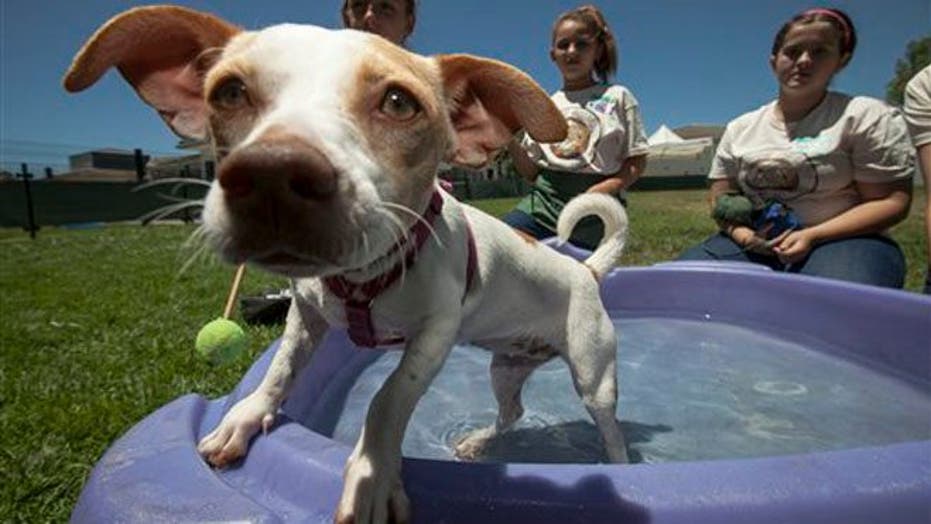Summertime, for animal shelters, is no walk in the park.
In the majority of shelters in the United States, summer brings more animals, more responsibility, and too often, fewer volunteers.
Both cats and dogs are increasingly showing up at shelters this time of the year for various reasons. The busiest day around the country is July 5th. Shelters are "absolutely chock full of terrified dogs on the day after the Fourth of July," said Dr. Kate F. Hurley, director of the Koret Shelter Medicine Program at the University of California at Davis Center for Companion Animal Health.
Fireworks cause high levels of stress and anxiety for dogs during the 4th of July. In her days as an animal control officer, Dr. Hurley saw dogs "jump through plate glass windows, they were so freaked out." Some dogs even need heavy tranquilizers to get through the night, she added.
There are a lot of other things owners can do to help their dogs get through the terror:
- Keep pets indoors: If you are having company, keep pets in a room that is off-limits to guests. Make sure there is plenty of food and water.
- Keep it calm: Surround dogs with favorite toys and familiar objects. Play soothing music and close doors to keep it quiet.
- Keep a barrier: Even if dogs don't seem upset by the noise, getting too close to fireworks can cause burns and eating them can be toxic.
While cats are less likely to suffer from these problems, spring through fall is “Kitten season” in the majority of the country.
The Albuquerque Animal Welfare Department gets hundreds of kittens during the summer. "People are more likely to get a dog fixed than a cat, more likely to microchip a dog than a cat and more likely to claim a dog than a cat. Cats are the throwaways and we end up with way too many litters," said director Barbara Bruin. New-born kittens need a lot of care and attention, and with the lack of helping hands and right medical care, many of them die this time of year.
Animal increase in shelters results in higher expenses. Besides food bills and utility bills, summer medical costs are largely magnified.
"Fleas and ticks are horrible in the summer, and this year is worse than ever because we had a mild winter that did not kill them off," said Whitney Jones, animal care manager at the Humane Society of Memphis and Shelby County, Tenn. "We purchase flea and tick medication in bulk to manage these costs, but yes, treating active flea and tick infestations does get pricey."
Also, medicine for heart worm, which is transmitted by mosquitoes, is excessively needed at this time of year.
Infamous for fewer volunteers and donations, the summer season does have a bright side, however.
"We usually have an increase in adoptions, especially in recent years with the downturn in the economy," said Madeline Bernstein, president of the Society for the Prevention of Cruelty to Animals Los Angeles. "More people declined family vacations or big purchases (like a boat or recreational vehicle) and instead chose to adopt a pet."
Last year in Richmond, about 30 percent of the animals placed all year were adopted in June, July and August, Kingry said.
"Many families come to us during the summer because they tend to spend more time at home, and children are out of school and can bond with the new family member," she said.
Based on reporting by the Associated Press.
Follow us on twitter.com/foxnewslatino
Like us at facebook.com/foxnewslatino

